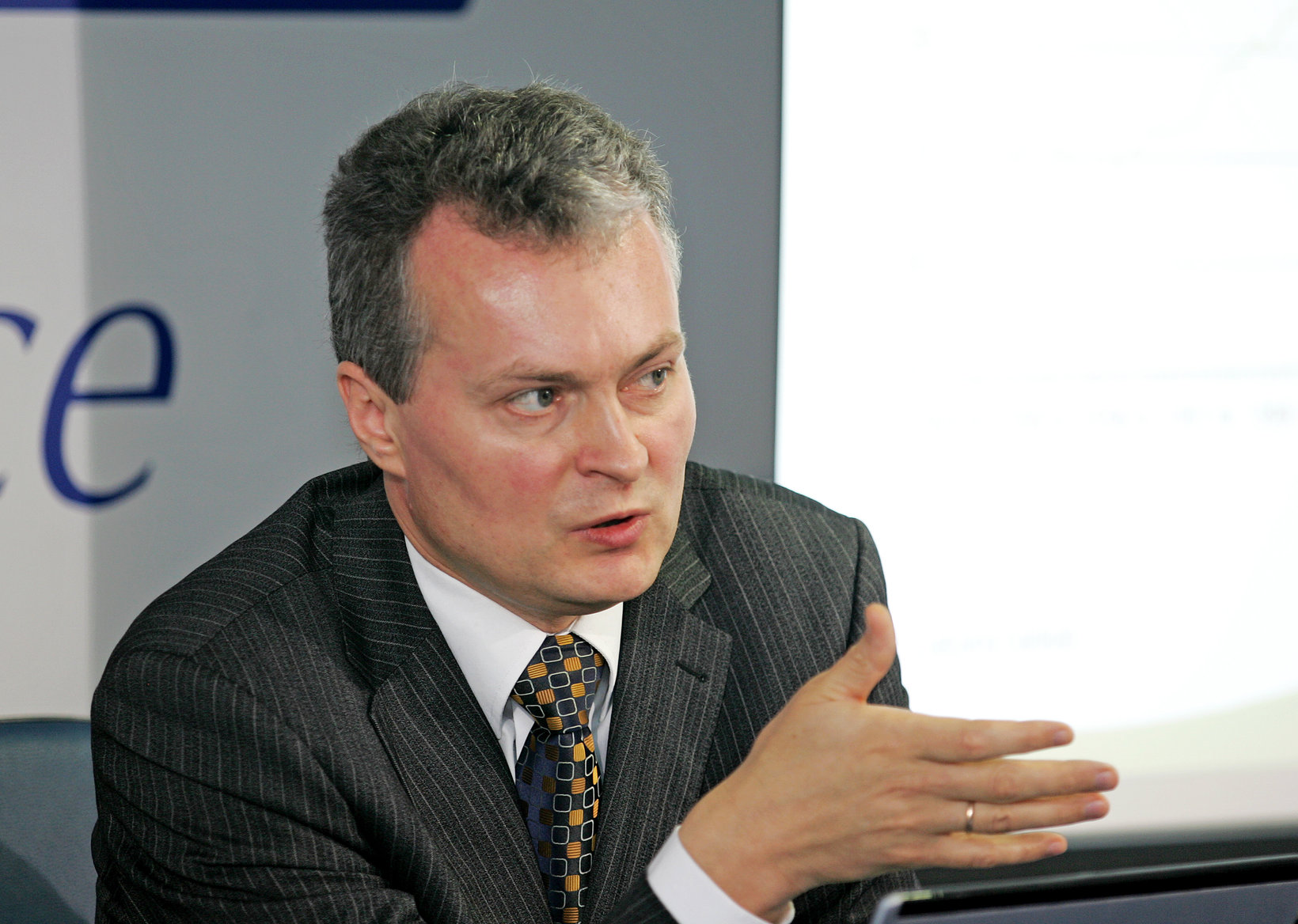It has been almost 100 days since Gitanas Nausėda was inaugurated the president of Lithuania. We take a look back at his actions for indications of what’s to come.
Over the first three months in office, President Nausėda has approved a new cabinet, vetoed four laws, delivered a speech at the United Nations and received a number of foreign leaders.
These have included Indian Vice-President Venkaiah Naudy, Latvian President Egils Levits, Georgian President Salome Zurabishvili, Moldovan Prime Minister Maia Sandu, Portuguese Defence Ministrer Joao Gomes Cravinho.
He has also visited Poland, Latvia, Germany, Estonia, the UN General Assembly in New York and, of course, Brussels.
Friendly with the Seimas
Over his first months in office, the president has vetoed four bills that the parliament sent for him to sign into law. However, this does not mean there is any rivalry for power; in fact, Nausėda has been trying to work closely with the Seimas, according to Tomas Janeliūnas, a political science professor at Vilnius University.
His vetoes were “a technical function” and “do not indicate that the president is willing to go into conflict with the Seimas”, Janeliūnas believes.
Quite on the contrary – Nausėda has met with various political groups and parliamentary committees. “This arguably shows that Nausėda was positively willing to listen to all sides in the Seimas, both the ruling majority and the opposition,” according to Janeliūnas. “I think the president’s attitude was honourable.”
EU business
Nausėda’s predecessor has famously insisted on handling all Lithuania’s affairs with the European Union herself. One episode has indicated that the new president might want to continue the tradition.
When Economy Minister Virginijus Sinkevičius was proposed as Lithuania’s EU commissioner by his party, but the prime minister hesitated to endorse him, President Nausėda made a strong statement: “The miscommunication between the Seimas and the government […] impedes and discredits the entire process of selecting the EU commissioner.” He then indicated he might take it upon himself to reach an agreement on the candidate with the parliament and the government.
This, Janeliūnas says, shows that the president “wants to keep European Union politics in his hands”. However, Nausėda stopped short of pushing either the Seimas or the government completely aside. “Nausėda involving himself in the search for an EU commissioner candidate was less about taking over the initiative than drawing attention to how chaotically the process began. Nausėda perhaps wished to be the coordinator or the peacemaker.”
Much ado about the budget
Domestic policy has been Nausėda’s focus over the first 100 days, however, and the president was much more active on issues to do with the economy and state finance, Janeliūnas notes.
Having built his campaign on a promise to achieve a proper welfare state, Nausėda has already put forth a package of spending and tax change proposals. As the parliament begins discussions on next year’s government budget, tensions between the president and the Seimas may intensify, according to Janeliūnas.
“Nausėda’s clashes with the ruling majority might come to the fore, since concrete proposals are coming from his office on cutting exemptions for the agriculture sector and other things,” he comments.
In a possible clash between the parliament and the Finance Ministry over the budget, President Nausėda is likely to side with the latter.
The president’s plans for welfare state might run against various interests in the parliament.
“In my view, now is the best time for Nausėda to try to further his welfare state idea with practical proposals,” Janeliūnas says. “If the Seimas ruling majority does not back Nausėda, there is a possibility of a political conflict.”
Foreign policy muscles
Nausėda has already met and greeted a decent number of foreign leaders, but most of these were one-on-one occasions to introduce himself; Nausėda’s real international politics muscle will show in multilateral fora, says Linas Kojala, the director of the Eastern Europe Studies Centre.
“The European Council this week and the NATO summit in late December – this is where it will be interesting to observe the Lithuanian president meeting other leaders in a multilateral environment under, I’d say, controversial circumstances: to discuss Brexit with the EU and trans-Atlantic relations in NATO,” according to Kojala.
This does not mean that Nausėda’s efforts to introduce himself to leaders of neighbouring countries were unimportant.
“Multilateral politics is built mostly on personal relations between leaders and these are established with friendly countries first,” Kojala says.
Russia and the rest
When it comes to relations with Lithuania’s most imposing neighbour, Russia, there is little freedom for maneuver, Kojala notes. Which is why Nausėda has himself commented that there are no reason to change Vilnius’ policies towards Moscow or seek a rapprochement.
A more interesting topic is Belarus with whom Nausėda has indicated he wants a “dialogue”.
But that dialogue still needs to be filled with concrete political content, Kojala notes. “So far, we’ve only heard introductory phrases about a possible change of policy regarding Belarus or at least encouraging a dialogue on a certain [higher government] level, something that didn’t exist before.”
Presidents and first ladies of Lithuania and the US / President’s Office
What should Nausėda do next? According to Kojala, the president should look for allies for Lithuania and strengthen the ties that are already there.
“After the UK’s departure, the EU budget will likely be smaller, which means we will have to defend our interests better, if we want to keep the support from structural funds and have our farmers receive equal payments. For that, we will need an alliance with Poland and other Central European nations,” according to Kojala.
Belarus’ nuclear power plant on Lithuania’s doorstep is another cause with which Vilnius will need allies.
“If the Astravyets NPP goes online, Lithuania could, I believe, be a standard-bearer for a common EU policy for nuclear energy around its borders, and not just in Belarus,” Kojala says.
“On each issue, we look for different friends, there are no permanent alliances in the EU.”









